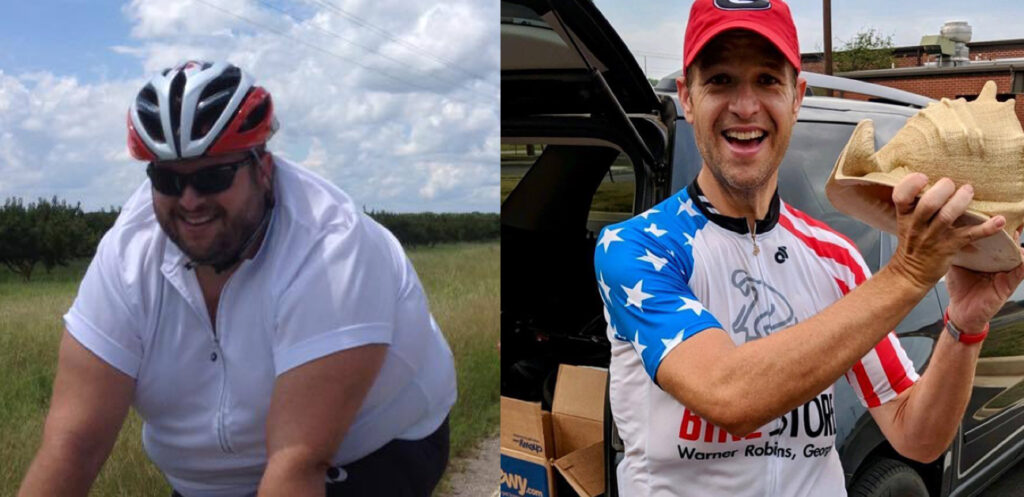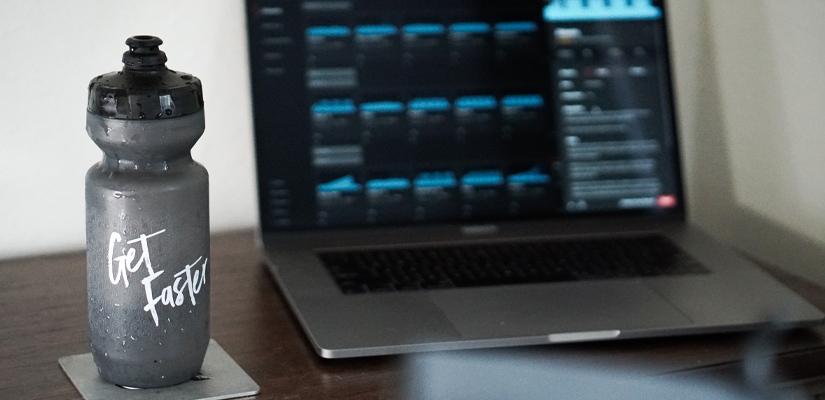Eating to Lose Weight

2015 is here and with it are new goals and challenges. While training may be vastly different for each of us depending on our genre of racing/riding, it’s safe to say we are all striving for a certain “race weight” that we want to be at as we charge into the new season. As endurance athletes, trying to lose weight is never as simple as just cutting calories. We must take into consideration the precious power:weight ratio and make small, calculated steps towards our goal weight. As a professional cross country mountain bike racer, there is no ratio more important to me than power:weight, and I’d like to share with you a few of my secrets in reaching race weight without losing power.
Never Sacrifice Training Fuel
Never, never, never shave calories before a big workout—even if you’re cycling for weight loss. I understand the reasoning behind this incredibly detrimental weight-loss tactic, but let me explain why this can end up doing more harm than good.
By going into a workout hungry, you’re hurting the way you’ll perform that day. This is because the body has many mechanisms in place to “slow you down” when it knows fuel sources are low in order to protect itself. Even if you’re able to will your way through and still get the workout done, at what cost was your effort? Hungry training equals unpleasant training and can quickly wear you down mentally and physically and lead to burnout.
Further, depleting your body of fuel during a workout can lead to a “starvation mode.” When your body is in this state, any fuel that it receives thereafter will be immediately turned into fat and stored because the body thinks you are going through tough times, so to speak, and is planning ahead. While this may not lead to weight gain under normal conditions due to the caloric debt you’re probably already in when this state is reached, it greatly hinders recovery, so much that it makes the workout almost pointless.
What to do:
Fuel your body regularly before, during, and after workouts. Enjoy a regular meal, rich in complex carbs and healthy fats before, consume adequate carbs every hour during (if a multi-hour workout), and avoid “light” recovery products. Remember, protein needs simple carbs in order to be more efficiently utilized so “low carb” or “sugar free” should never be on the packaging of your recovery drink or meal. There’s a time and place to limit calories and on the bike is neither.
Timing
When you eat is just as important as what you eat when it comes to losing weight. Many attempts to reach race weight fail despite a drastic cut in calories due to this fact. By timing your nutrients correctly throughout the day, you can optimize your metabolism for optimal energy throughout the day as well as fat loss.
What to do:
First thing in the morning, start the day off with an easily digestible protein and carb. It’s important to get this into your system immediately after waking up. This will help jumpstart your metabolism while also getting valuable amino acids and sugar back into your bloodstream to charge you up for the day. A good option here is oatmeal with nonfat milk or greek yogurt with granola.
If it’s a training day, continue to fuel as you normally would for the ride ahead. If not, try to eliminate any feelings of hunger with fibrous foods like fruits, vegetables, or raw nuts. Fiber is your friend when it comes to losing weight since it fills you up but doesn’t stay with you.
Finally, avoid eating 3 hours before going to bed. As the day progresses, your metabolism naturally slows down, reaching it’s lowest levels as you sleep. Calories taken in just before turning in for the night stay with you and hinder many physiological processes that take place while asleep. By going to sleep on an empty stomach, both the digestive and endocrine systems are able to rebalance and recharge themselves for optimal function the next day. Further, important hormones like growth hormone are released as you sleep which help you recover and build muscle and other tissue, but this process happens most efficiently on an empty stomach.
After just a single week of “jumpstarting” your day early with protein and carbs and then going to sleep on an empty stomach, you will start to feel your metabolism picking up. As this happens, the fat starts melting.
Avoid Sugar
This is the one big dietary restriction I would recommend when it comes to getting your weight down. By simply following the first two tips I’ve provided you can make some significant progress. However, when it really comes down to dropping pounds, you need to drop sugar.
What to do:
First off, there is a time and place for sugar. This includes during a high-intensity workout lasting over 2 hours, as well as immediately after a workout with some kind of protein recovery supplement. As discussed above, simple carbs (sugar) drastically improves the rate of which protein can be utilized.
However, when you are not training sugar should be avoided entirely. Even in fruits like berries and apples, sugar content is extremely high. You can get away with this early in the day due to the high amount of fiber that is also in these fruits, but this should be avoided entirely in the late afternoon/evening.
The reason for this is that the metabolic fate of sugar is largely fat storage. Further, the insulin spike that comes with sugar intake can greatly unbalance the endocrine system and interrupt other metabolic processes throughout the body. While simple sugars can work miracles under certain circumstances, they really serve no purpose in day-to-day life.
These are the pillars of my yearly descent to race weight and I hope they help you reach your best power:weight ratio ever in 2015.


